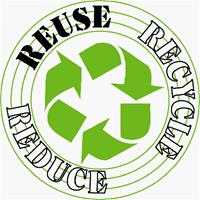
Waste was always going to be a messy challenge (pardon the pun). It was difficult to measure, and today’s modern industry designs stuff to be disposable and short lasting. Nothing is made to last for ever any more, and most people are suffering from Affluenza!
I tackled the problem from a couple of directions, one being to cut down on waste, and the other to help feed my vegetable garden with wholesome organically produced fertiliser.
First of all I have tried to instil some of my personal values into my family’s way of thinking, being the importance of the 3 R’s; Reduce, Reuse, and Recycle. Before anything else, we ask ourselves these two questions, “do we really need whatever we are proposing to buy?” and “Is it a need or a want?”. This question helps stop waste at its source, which is the initial purchase. There is no use buying something, getting it home and finding that it doesn’t suit its purpose, or makes you happy, and then throwing it into landfill a few years later. I think that our habit of taking our own shopping bags to the shops everywhere we go is another example of avoiding waste, by negating the need for plastic shopping bags. Another way of reducing is putting a “No Junk Mail Please” sign on your letterbox. If it doesn’t get delivered, you don’t have to throw it away, or cut down the forests to make the stuff in the first place!
Secondly we try and reuse stuff in a different way. For example, Kim went through her wardrobe about two months ago and found a whole lode of clothes that were in disrepair and then cut them up for cleaning rags. We also send unwanted clothes that are too small for our growing children to either the local MS shop or to friends that have smaller kids. The same goes for any type of glass jar or ice cream container. The jars get used for storing jams and preserves, and the containers store all sorts of things. We hold on to all of the free local newspapers and I use them in garden beds or shred them to add to the compost bins. Kim keeps all the plastic takeaway meal containers to store leftover dinners in. It is amazing what you can reuse if you think about it!
Whatever waste remains, we try and recycle it. If it is food scraps from the kitchen (except meat which goes to the dog most of the time), it goes into compost or the worm farm to be recycled back into the garden. Similarly any garden waste goes straight into the compost bins. However, if it is non-organic, and can go in the council recycling bin i.e. cans, glass, plastics #1 to #7, or paper that we can use, then off to the recycling centre it goes. As a nice touch, Kim drew a picture of a happy worm on the little bin I keep the kitchen scraps in before I blend their food each week. Very cute!
We find that our landfill rubbish bin is only a quarter full or sometimes less, whereby before we started it was always overflowing on bin collection day. It only contains plastics that are not recyclable, usually plastic bags from fruit and vegetables (which I use first to store the food scraps for the worms), dog poo in biodegradable plastic bags (I will be feeding this to my next worm farm soon), and other plastic packaging with no recycling symbol. So based on this fact, I believe that we have reduced our landfill waste by at least 75%. Seeing that we set out to reduce our landfill waste by at least 50%, I believe we did a sterling job at this challenge.
Kim doesn’t like touching the worms. They squirm too much, but she loves the tomatoes and other vegetables they help to grow! Ben loves it when I show visitors the worm eggs. He thinks the worms are really cool (so do I) and watches me feed them every few days to see how many there are!
Charles Darwin (1809 – 1882) said it best about worms with this quote;
The plow is one of the most ancient and most valuable of man’s inventions; but long before he existed the land was in fact regularly plowed, and still continues to be thus plowed by earthworms. It may be doubted whether there are many other animals which have played so important a part in the history of the world, as have these lowly organized creatures.
If you would like me to go into more detail about things like worm farming or composting, just leave a comment and I will document the way I went about it in a few posts time.

Thanks for pointing this out – I’ve been meaning to recycle my old phone (and my wife’s phone, since she doesn’t use it any more) for a while, but never got round to it.
Popped out at lunch, got some bags – they’ll be in the mail tomorrow.